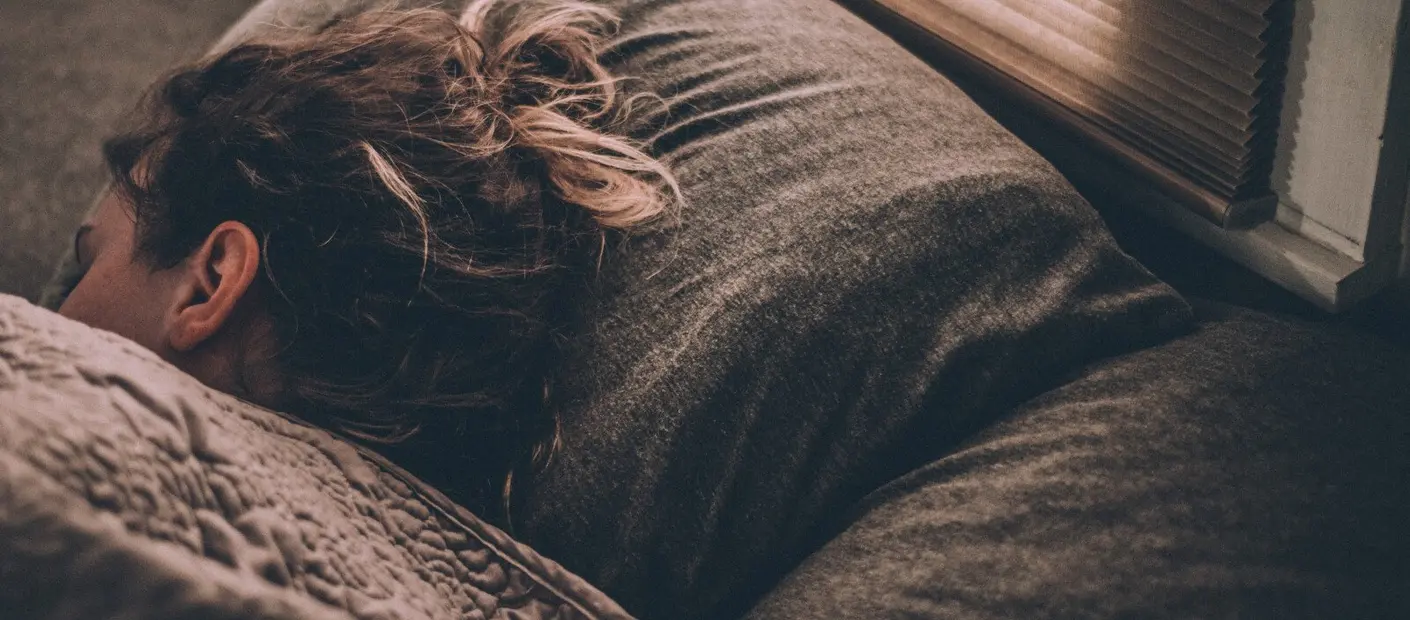
How to Get Rid of Sour Smelling Sweat at Night
by Matthew Dunn
Most people know what it's like to wake up sweating due to hot temperatures. But for some, night sweating is a completely different experience. In fact, one study showed that 41% of 2000 patients reported having night sweats. The issue was most common in adults (age 41 to 55).
Sweating while sleeping is extremely uncomfortable. Not only do individuals with this problem wake up drenched in sweat, but most of them also have a bad odor that accompanies it.
Thankfully, there's hope. If you're dealing with sour-smelling sweat at night, this guide has the answers. Continue reading to learn the common causes of night sweats and how you can get them under control.
What Causes Sweating?
Sweating and body odor are produced by the sweat glands in your body. The two primary types of sweat glands are apocrine glands. eccrine glands cover a large portion of the body and open directly onto the surface of the skin. When your body temperature increases, these glands release fluids that cool you down as they evaporate.
Apocrine glands are located in areas where you have hair—like your groin and armpits. These glands release a milky fluid whenever you feel stressed. This fluid doesn't have a smell unless it mixes with the bacteria on your skin. If that occurs, it creates a foul smell.
Causes for Sour Smelling Sweat at Night
Night sweats don’t happen just because you’re a “hot sleeper”. There’s generally a reason behind it, and if you can identify what’s causing the issue, it’ll hopefully help you.
Below are some of the contributing factors of sour smelling sweat at night:
Perspiration and Bacteria
The sour smell you have when you wake up is generally caused by bacteria and perspiration. Everyone has bacteria on their skin. However, when the bacteria combines with sweat, body odor is created.
If your sweating is caused by hot temperatures, there’s a simple solution. Reducing the temperature in your room and wearing cooler clothing is the first step. On the other hand, there may be a deeper issue that’s causing the problem.
Diet
Most likely you’ve heard the phrase “you are what you eat”. Although that statement has become a bit cliche’, there’s a lot of truth to it. Sour smelling sweat at night could be the result of dietary habits. Some of the primary contributors are garlic, onions, and caffeinated drinks.
However, there might be other foods that are causing an issue and releasing body odor as well. To figure out if your diet is creating a foul smell while sleeping, keep a food journal.
After a week or two, compare the smell of your body odor to the food you consumed the day prior. The meals you’re eating could be causing your sour smelling sweat at night.
Other Contributors
If changing the temp in your room at night and altering your diet doesn’t improve your night sweating, make an appointment to see your doctor. Sometimes, sweating and bad body odor from sleeping is a result of a medical condition like hypoglycemia or hyperthyroidism.
Getting the appropriate treatment for the disorder can significantly minimize perspiration and sour smelling sweat at night. Once your physician eliminates blood or thyroid disorder as a potential culprit, they can help you find a solution to your night sweats.
Hormonal Shifts
When a woman goes through menopause and perimenopause, it can lead to night sweats. Many mature women often experience hot flashes during the day when going through menopause, and they also experience them at night.
Also, other hormonal changes in women can lead to night sweats as well. For instance, pregnancy creates lots of hormonal changes that result in sweating at night.
Furthermore, drops in testosterone in men can contribute to night sweats too.
Idiopathic Night Sweats
If all other potential causes for sour smelling sweat at night have been ruled out, your doctor may be able to determine if you have idiopathic night sweats. Unfortunately, in this situation, there is no known cause for night sweating. If a person experiences these kinds of night sweats, there's no environmental or medical contributor.
Ways to Minimize Night Sweats
Now that you know more about the common reasons for night sweats, it's time to get a handle on them. Even if you've suffered from sour smelling sweat at night for a long time, that doesn't mean you have to tolerate it. Here are some ways to reduce night sweating:
Keep a Cool Temp in Your Room
If your night sweats are caused by a medical condition, the last thing you need is to add to the problem. To make sleeping more comfortable, keep your bedroom at a cool temperature. Doing so will provide ventilation and minimize sweat production.
Also, turn on fans for circulation, and if it's a cool night, open the windows.
Wear Thin, Breathable Pajamas
Wear moisture wicking or quick drying pajamas to bed at night. It'll help to maintain the sweat, so you don't wake up drenched. Also, stick to clothing that's thin and breathable. Wearing long johns or thick pajamas will only trigger night sweats. Opt for shorts and sleeveless tank tops.
Also, if you're a person who feels cold when you fall asleep and gets hot as the night progresses, wear layers so you can take clothing off as needed.
Keep Cool Items Around
Place a cool pack under your pillow at night. It'll provide a direct source of cold to help aid with your night sweating. You should also flip your pillow during the night, so you can lay on the chilled side.
To help out a bit more, keep a bucket of ice by your bed. As your body temp rises, you can rub it over your face and neck to cool you back down. Cold compresses and cool wash cloths work as well.
Stay Away From Spicy Foods
Although spicy food is tasty, you may have to stay away from it. Hot peppers and other spices can lead to sour smelling sweat at night. If you're a spicy food lover, consider eating it earlier in the day and avoid it at dinner time. Doing so should help to reduce your night sweats.
In addition to that, it's a good idea to stay away from alcohol too. As you know, alcohol can raise your body temperature, and if you drink it before bed, it can trigger night sweating.
Lower Your Stress
Stress and anxiety are huge contributors to night sweating. If your blood pressure is up and your heart is racing, it leads to sweaty palms and a sweaty night's sleep.
Before bed, try to lower your stress by calming yourself and doing breathing exercises. It's also a good idea to meditate. By soothing your heart and mind before going to sleep, it helps to calm your emotions.
When your mind is relaxed, so is the rest of your body.
Exercise During the Day
It's a good idea to get in a heart pumping workout each day, but not before bed. If you are someone who experiences night sweats, exercising before bed isn't a smart move.
After a workout, your body is still going and your metabolism is up and running. Going through a strenuous workout before getting into bed could lead to sour smelling sweat at night.
If you like to exercise in the evening, consider taking a walk. Doing so will allow you to get in physical activity without putting your body into overdrive.
Take a Cold Shower
Taking a cold shower before "hitting the hay" is a great way to reduce your body temperature. Not only will you feel cooler, but it cleanses your body of the bacteria that could lead to sour smelling sweat at night. You'll get into bed feeling fresh, which should help with foul body odor.
Wear Strong Deodorant
If you suffer from night sweats, the average deodorant isn't going to get the job done. By putting on a tough deodorant, you can combat the bacteria that leads to the sour smell that usually accompanies night sweats.
Drink Cold Water
Staying hydrated is important whether you have night sweats or not. However, if your body is dehydrated and you're feeling thirsty throughout the night, it's essential to drink water. It's a good idea to drink ice water to minimize your body temperature and control your night sweats.
If your overall body temperature is lower, your body won't produce as much sweat. Not to mention, when you drink water, it helps to replenish the hydration that your body releases due to sweating.
Buy a Different mattress
If night sweating is a problem for you, consider switching out your mattress. Some mattresses are known for "sleeping hot" and they usually contribute to night sweats.
Instead of a traditional bed, consider getting a gel foam or latex covered mattress. By switching out your bedding, it should significantly reduce the warmth you feel while you're sleeping.
Sleep Under Thin Sheets
Bulky comforter sets are decorative and comfy, but they're not compatible with night sweaters. Instead of using the usual bedding, consider using thin fleece blankets instead. They are soft and comfortable, but they aren't as hot as cotton blankets.
You may also want to use a silk or satin bed sheet instead of cotton as well. These types of sheets don't trap as much heat, which will allow you more air circulation and minimize night sweating.
Or if your night sweats are severe, you may have to opt out of using bed covers altogether.
Combat Night Sweats With Lume
If you're suffering from sour smelling sweat at night, let Lume help. Our deodorant provides a strong defense against that sour smelling odor. Lume works by preventing bacteria from digesting your sweat and farting out odors. Lume is safe to use anywhere on your external body so you know that your good bacteria can thrive while you control odor everywhere.
Lume Deodorant For Pits, Privates & Beyond comes in cream stick or tube and solid stick form and in a variety of scents. With our deodorant, you’ll wake up feeling and smelling fresh.
Categories
Recent Articles
- Meet Our New Clinical Strength Antiperspirant Spray
2026-02-05T21:00:00.000Z
- The Art of Scent Layering With Lume
2025-09-24T20:51:28.831Z
- Your Pits Deserve Better: Why Lume is The Best Deodorant For Underarms
2025-08-08T14:01:16.861Z
- Bacteria On Our Skin: Friend Or Foe?
2025-07-17T19:53:50.363Z
- Why Lume's Premium Ingredients Deliver Quality & Real Value
2025-06-20T15:57:17.551Z









